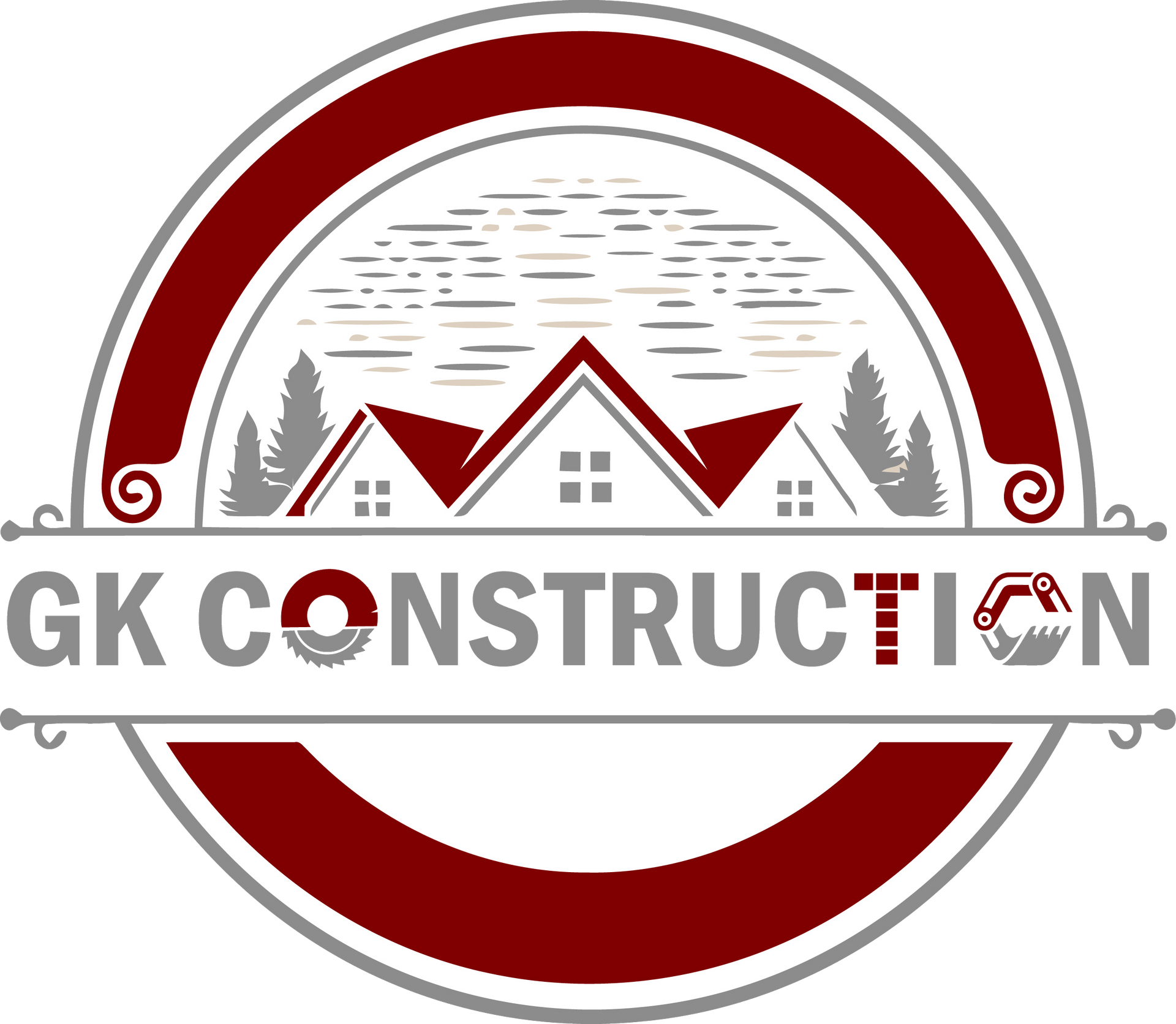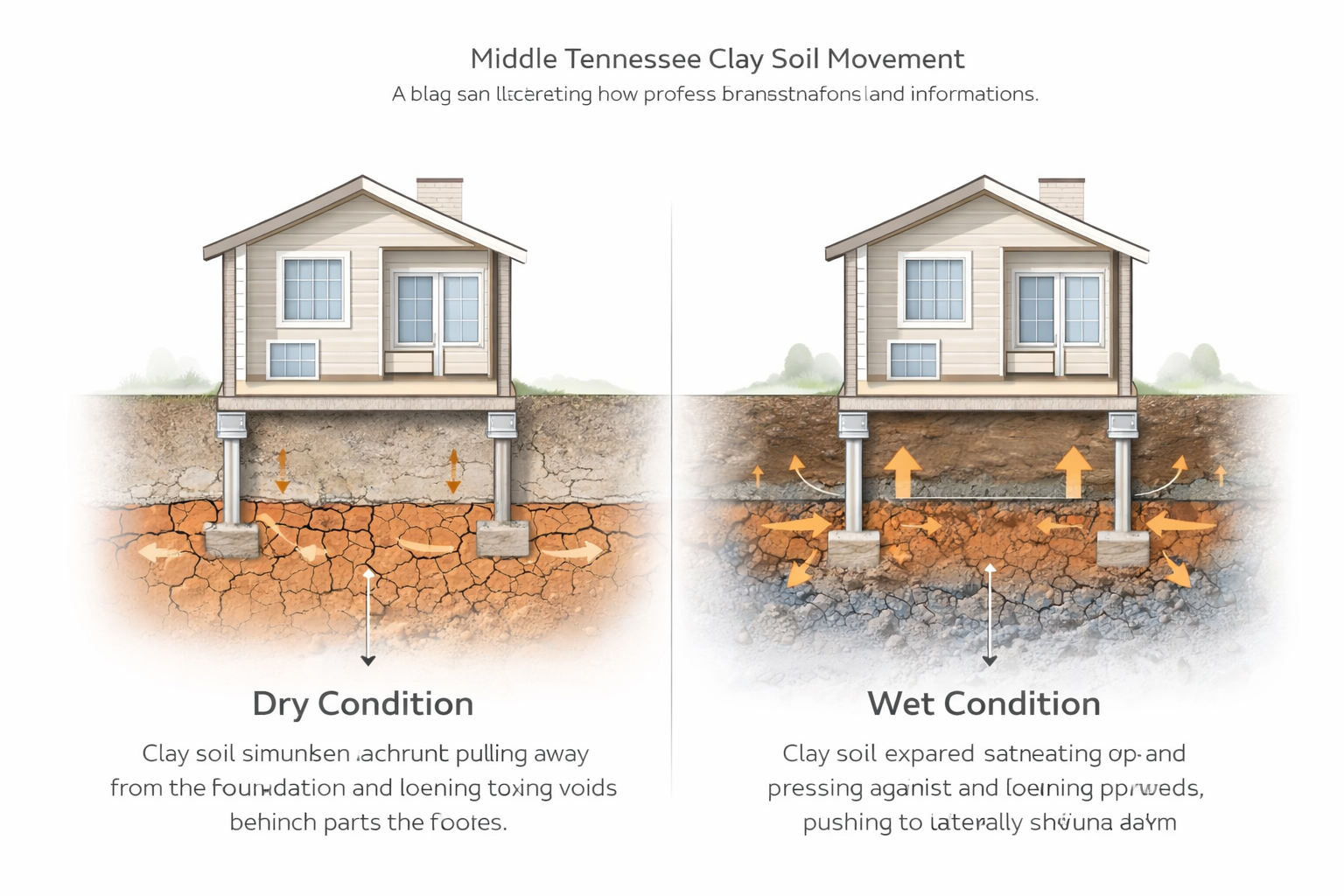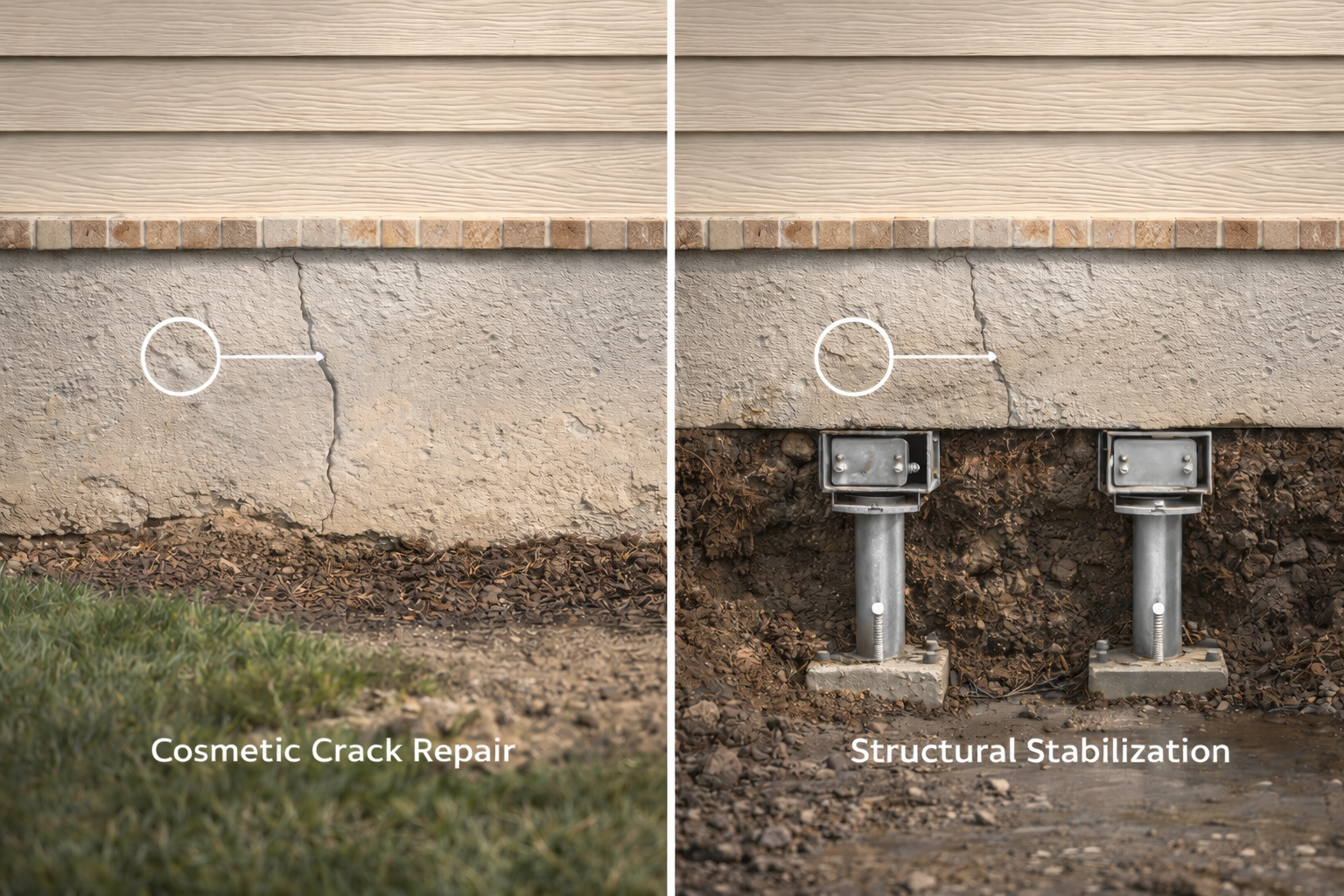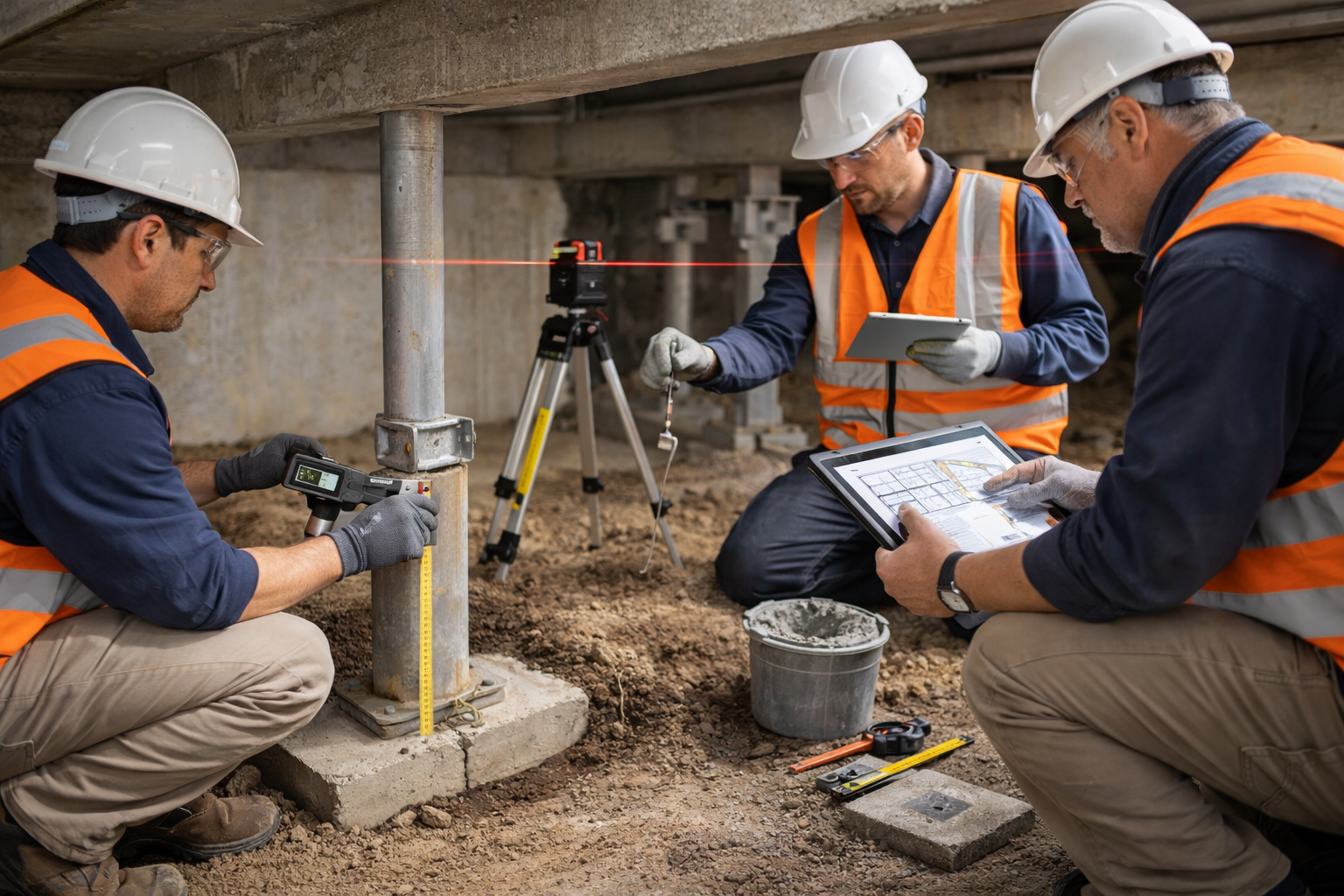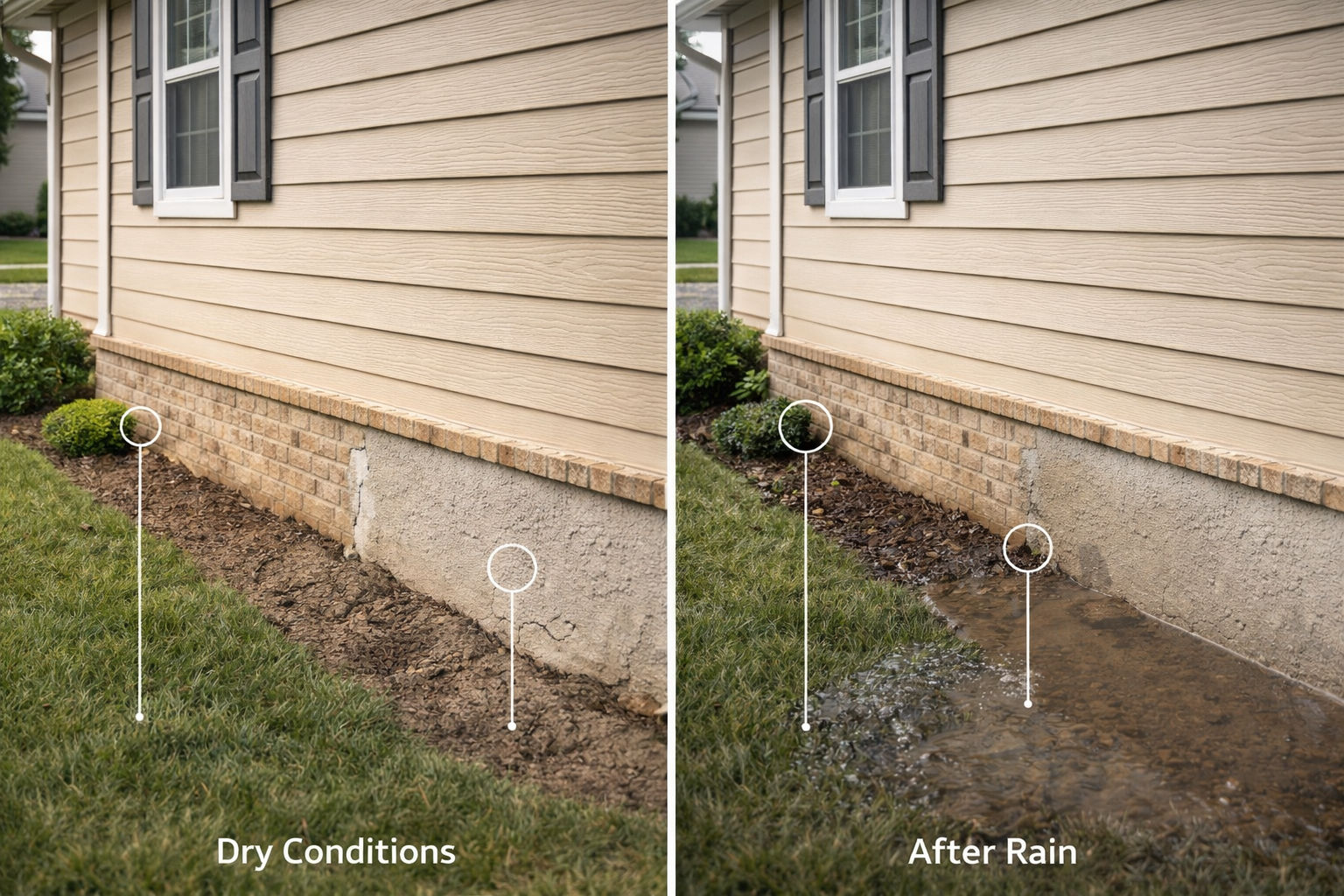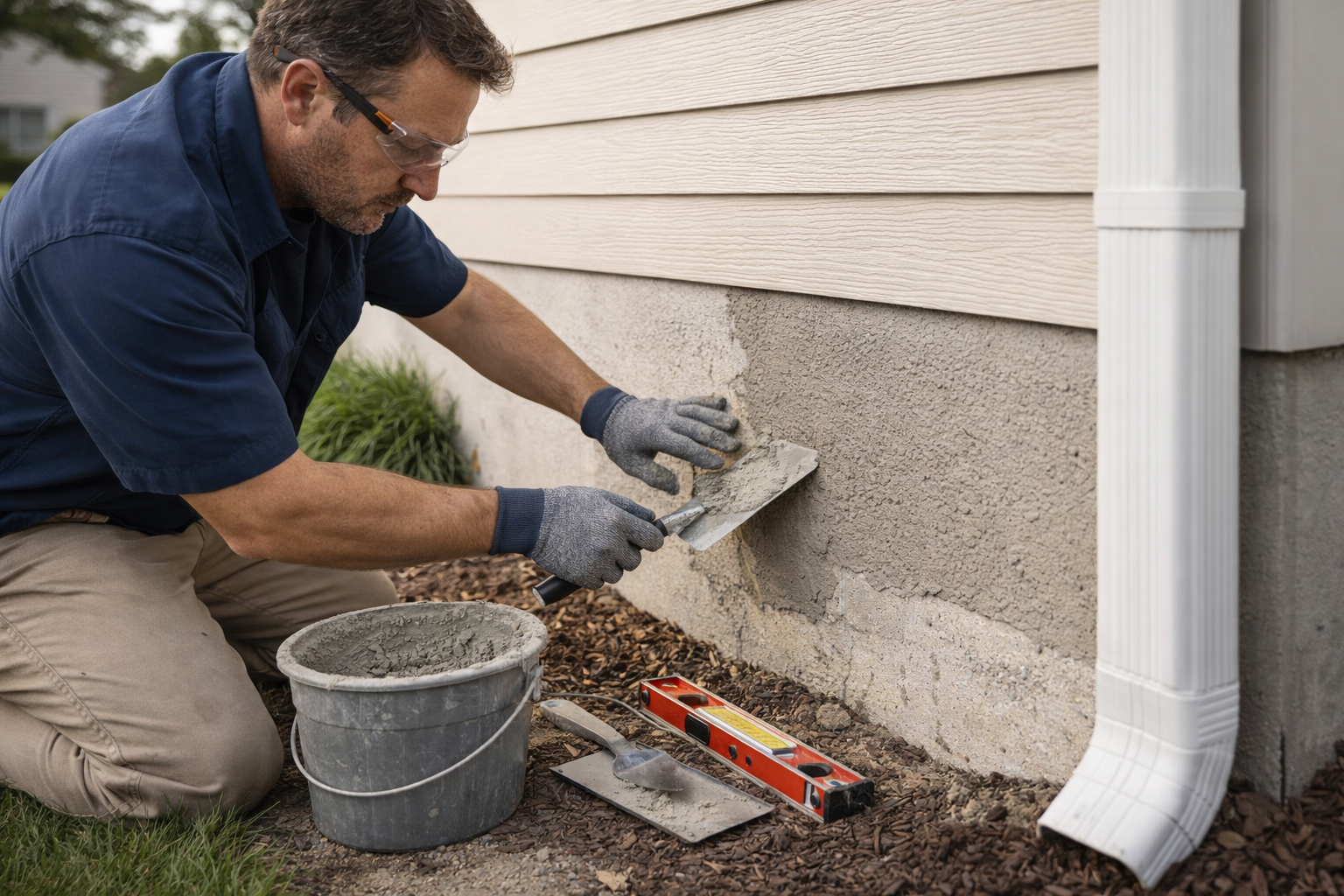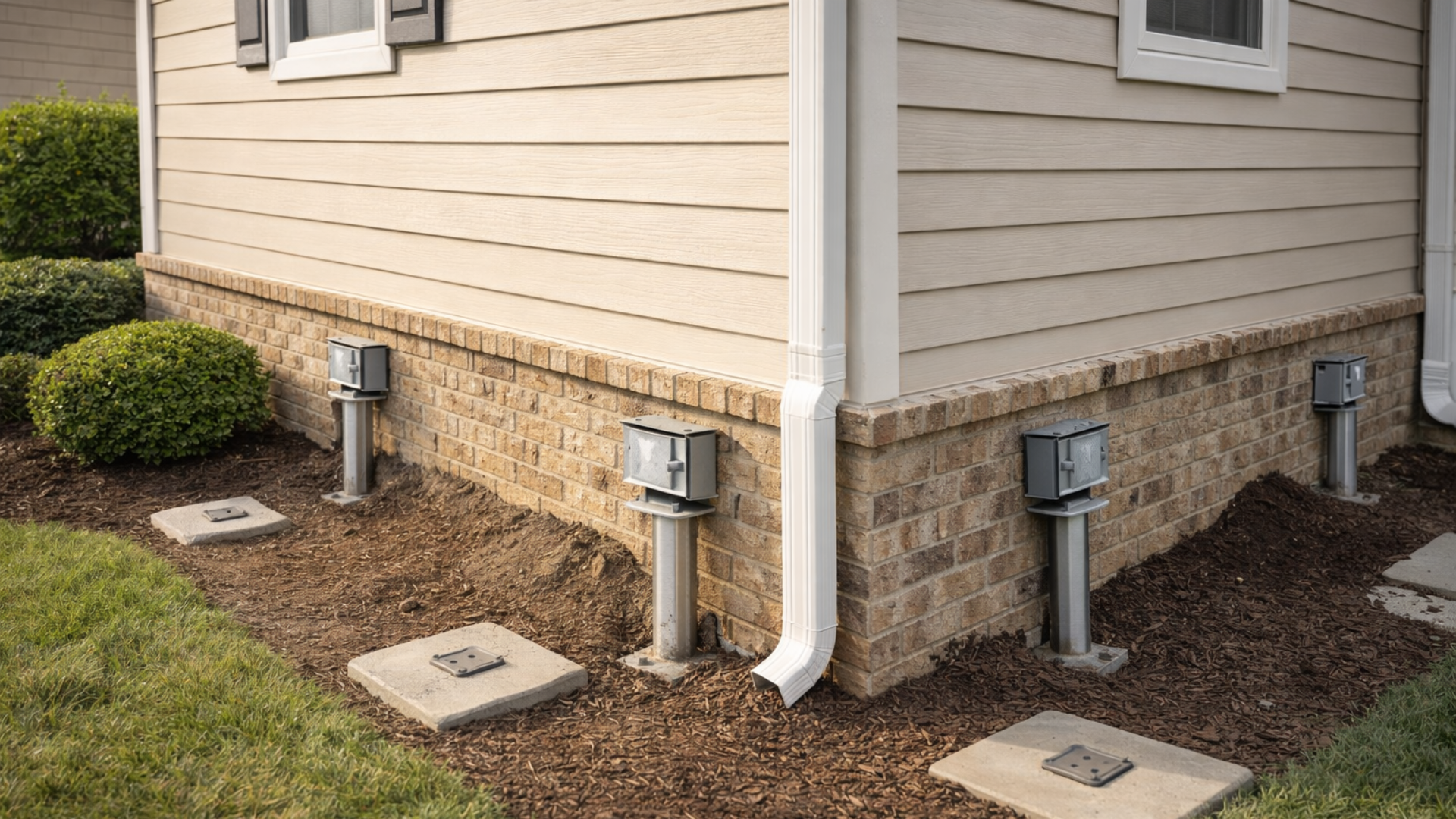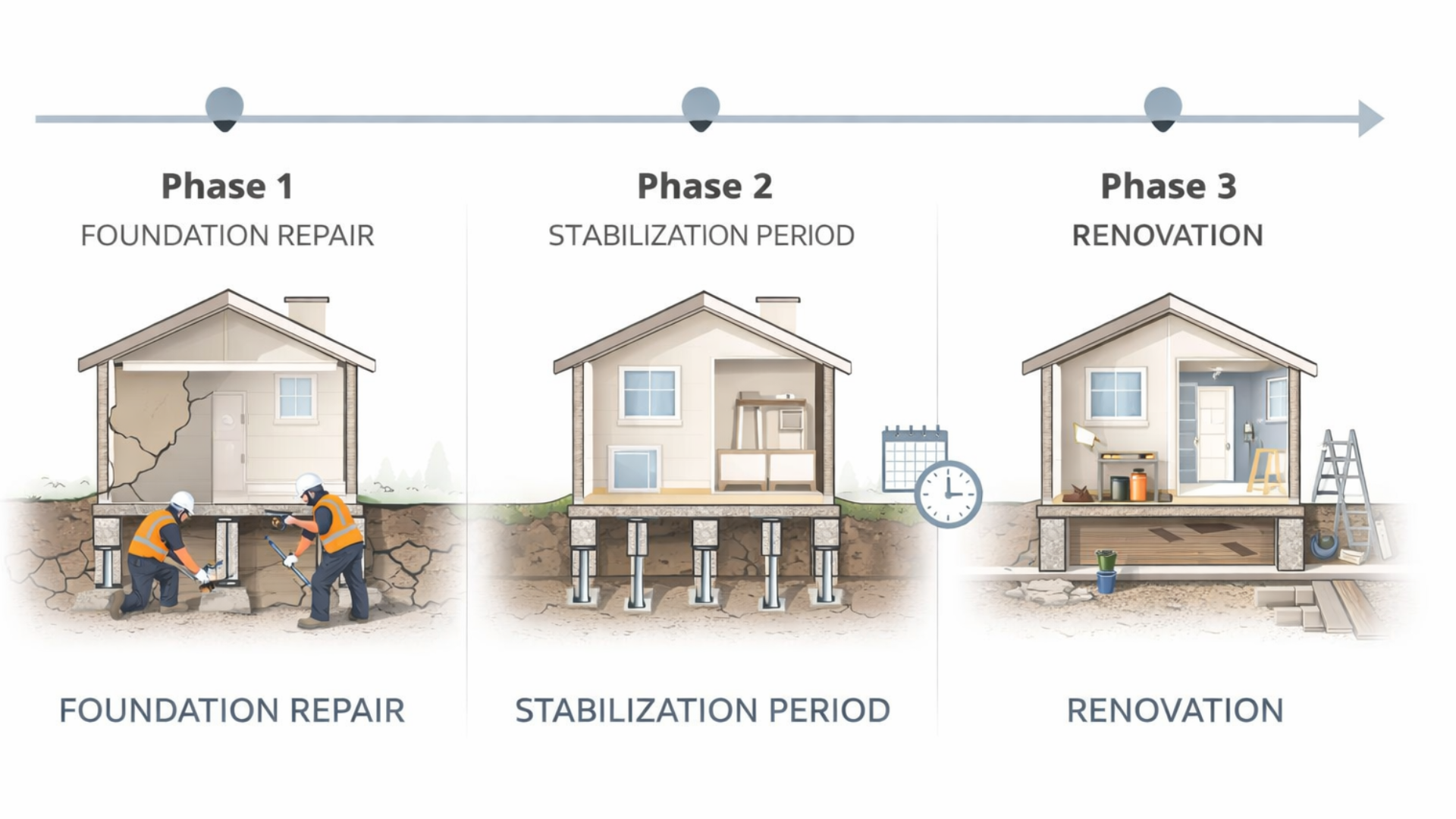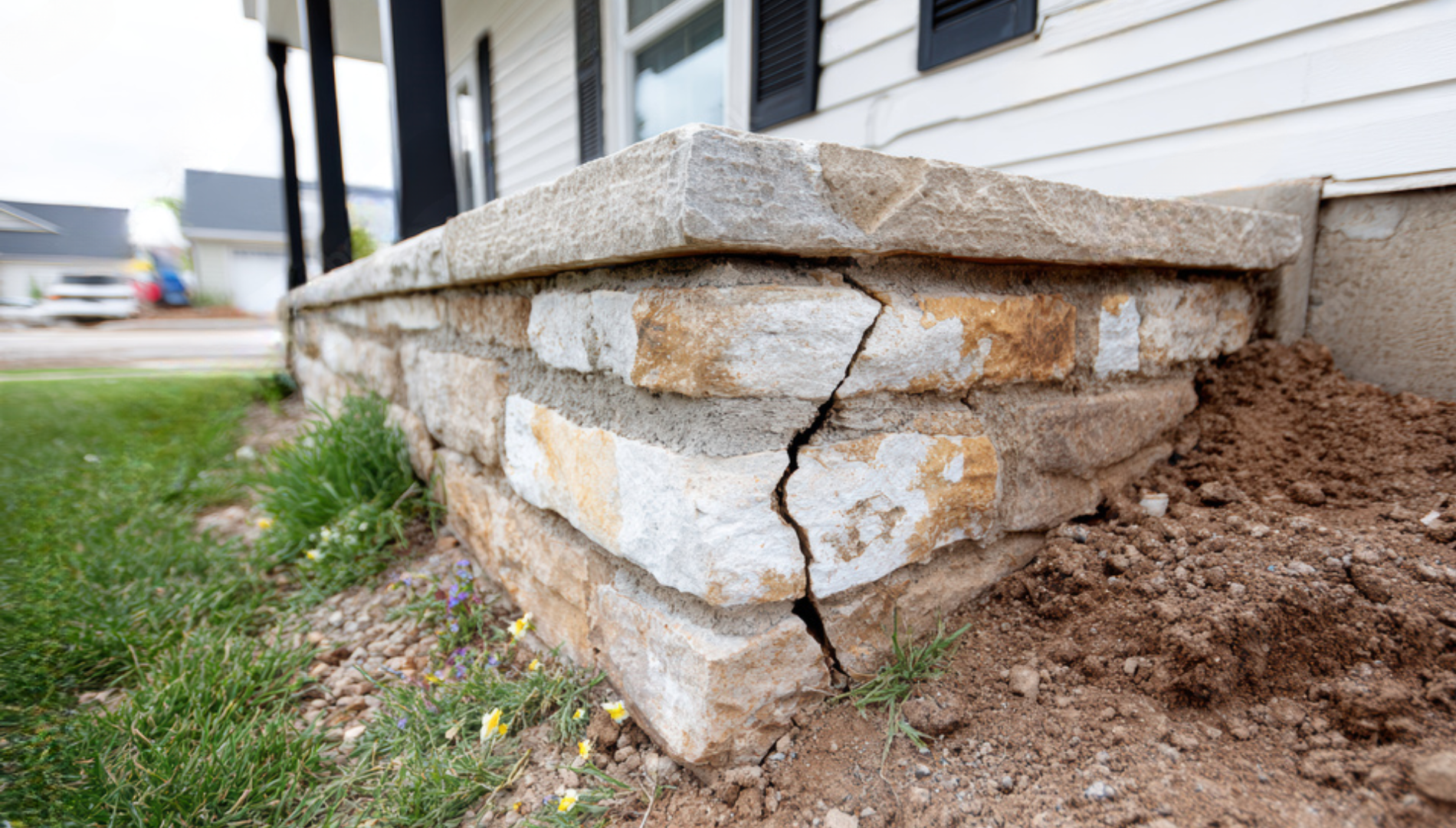How Nashville Soil Affects Foundations

What type of soil does Nashville have?
Nashville sits on a mix of red clay and limestone. On the surface, that doesn’t sound like a problem, but under your home, this soil can shift, swell, and shrink depending on moisture levels. Those subtle movements can lead to cracks, uneven floors, and other costly foundation issues if left unchecked.
If you live in Middle Tennessee, you’ve likely heard stories about cracked foundations, sticking doors, or uneven floors. The truth is, it’s not just bad luck, it’s the soil beneath your home.
Nashville’s soil, primarily made up of clay and limestone, expands when it’s wet and contracts when it dries out. This ongoing push and pull puts stress on your foundation, causing it to move and crack over time.
While soil movement is inevitable, damage isn’t. Knowing how the local soil behaves allows homeowners to take preventative measures. Hiring foundation repair Nashville specialists ensures your home gets expert care from professionals who understand Tennessee’s unique terrain.
In this guide, you’ll learn how Nashville’s soil composition affects foundations, what to watch for, and how professionals like GK Construction Solutions can help protect your property.
Understanding Nashville’s Soil Composition
Nashville’s geology is a blend of clay-heavy topsoil and porous limestone bedrock, a combination that’s both rich for farming and challenging for home construction.
1. Red and Yellow Clay
Most Nashville neighborhoods are built on dense red or yellow clay. These soils retain water easily, expanding when saturated and shrinking when dry. This constant volume change is one of the leading causes of foundation cracks and uneven settling.
2. Limestone Bedrock
Below the clay lies Nashville’s limestone layer, porous, soft, and vulnerable to erosion. Rainwater dissolves limestone slowly, forming underground voids or sinkholes. Over time, this can cause subtle dips or shifts beneath a home’s foundation.
3. Loamy Soil in the Suburbs
Suburban areas such as Franklin, Brentwood, and Hendersonville contain loamy soil, a mix of clay, silt, and sand. It drains better than pure clay but still expands slightly during wet seasons.
This variety of soil types explains why foundation movement is common throughout the region. Seasonal changes in moisture and temperature make regular inspections a smart investment for Nashville homeowners.
How Can the Soil Texture Influence a Foundation?
Soil texture, the mix of clay, silt, and sand, directly affects how the ground reacts to moisture.
- Clay Soil: Holds water and expands dramatically when wet, then shrinks when dry. This movement causes heaving or cracking.
- Sandy Soil: Drains quickly but can erode under constant water flow, leading to settling.
- Silty Soil: Retains moisture and loses strength when saturated, resulting in poor load-bearing support.
Nashville’s predominantly clay-based soil changes with every storm and dry spell. For example, after a heavy spring rain, the soil expands; by late summer, it contracts and leaves gaps beneath your foundation. Those gaps cause small shifts that eventually show up as cracks inside your home.
The takeaway? Soil texture determines your home’s stability, and knowing what’s under your property helps you plan maintenance like sealing, drainage improvements, or pier installations.
What Are the Problems Associated With Expansive Soils on Building Foundations?
Expansive soils, particularly those rich in clay, are one of the biggest causes of structural damage in the U.S.
1. Foundation Cracks
When clay absorbs water, it swells. As it dries, it contracts. That constant cycle exerts pressure on your foundation, leading to cracking in slabs and walls.
2. Uneven Settlement
Different parts of the soil expand or contract unevenly, causing parts of your foundation to rise or sink. This results in sloping floors or cracked ceilings.
3. Moisture Intrusion
Cracks allow water to enter basements or crawl spaces, encouraging mold growth and weakening structural components.
4. Interior Damage
Misaligned doors, drywall cracks, and gaps around windows are common symptoms of expanding soil beneath your home.
According to the U.S. Geological Survey (USGS), expansive soils cause more annual structural damage in the United States than floods, earthquakes, and tornadoes combined. For Nashville homeowners, that statistic highlights the importance of staying proactive with soil and moisture management.
If you spot early warning signs, schedule a foundation inspection and get quotes from local contractors. Small issues are easier and far cheaper to fix early.
Is Nashville Soil Acidic?
Yes… most of Nashville’s red clay soil is slightly acidic, typically with a pH between 5.5 and 6.5. This is due to organic matter and the natural decomposition of vegetation over limestone.
While mild acidity isn’t dangerous, prolonged contact with unsealed concrete can slowly erode calcium in the material, reducing surface strength.
A professional contractor can perform a quick pH test during inspection. If needed, they can apply sealants or waterproof barriers to prevent acid-related wear. Regular maintenance, including proper grading and sealing, protects your foundation for the long haul.
How Soil Moisture Affects Foundation Movement
Moisture is the main driver of foundation damage in Nashville. Both too much and too little can spell trouble.
- Excess Water: Causes clay to expand, pushing against the foundation and forming cracks.
- Too Little Water: Causes the soil to dry out and shrink, leaving voids that let your home settle unevenly.
Poor drainage compounds these problems. If gutters or downspouts dump water near your home’s base, the soil stays saturated. Over time, this leads to uneven foundation movement and stress fractures.
For long-term prevention, consider grading improvements, French drains, or waterproof coatings. Local professionals can assess moisture patterns and provide quotes for corrective work that protects your property from future damage.
Professional Solutions for Nashville Soil Challenges
When it comes to addressing soil-related foundation issues, foundation repair Nashville specialists use a mix of engineering and local knowledge.
1. Soil Stabilization
Contractors may inject lime or chemical stabilizers into the ground to reduce expansion and strengthen clay soil.
2. Piering and Underpinning
Steel or concrete piers extend below active soil layers, anchoring the foundation to more stable strata. This corrects settling and prevents further movement.
3. Drainage Systems
Grading the yard, installing French drains, or extending downspouts helps redirect water away from your home’s base.
4. Waterproofing and Sealants
Applying waterproof coatings or installing vapor barriers keeps moisture from penetrating foundation materials.
5. Regular Foundation Inspections
Annual checkups catch small shifts before they become major cracks, saving homeowners thousands over time.
GK Construction Solutions customizes repair strategies based on your soil type and home design, ensuring lasting results instead of temporary fixes.
When to Call a Contractor
You should call a professional if you notice:
- Cracks forming in walls or floors
- Doors and windows sticking or misaligning
- Gaps between floors and baseboards
- Water pooling near your foundation
- Uneven or sloping floors
These are signs that the soil under your home is shifting and your foundation needs attention.
Contact GK Construction Solutions for expert guidance and professional foundation repair in Nashville. Their experienced team understands the region’s soil conditions and delivers reliable inspections, fair quotes, and long-lasting repairs.
Conclusion
Nashville’s scenic landscape hides a challenging secret, its clay and limestone soil constantly shift with moisture. Over time, that movement can crack foundations and warp floors.
Here’s what to remember:
- Nashville’s red clay soil expands and contracts with moisture.
- Limestone bedrock can dissolve, causing settling and uneven support.
- Proper drainage, sealing, and early inspection keep homes stable.
Your foundation doesn’t have to suffer from Tennessee’s tricky terrain. For local expertise, transparent pricing, and proven repair solutions, contact GK Construction Solutions — trusted professionals in foundation repair Nashville.
Follow our social media pages below:
